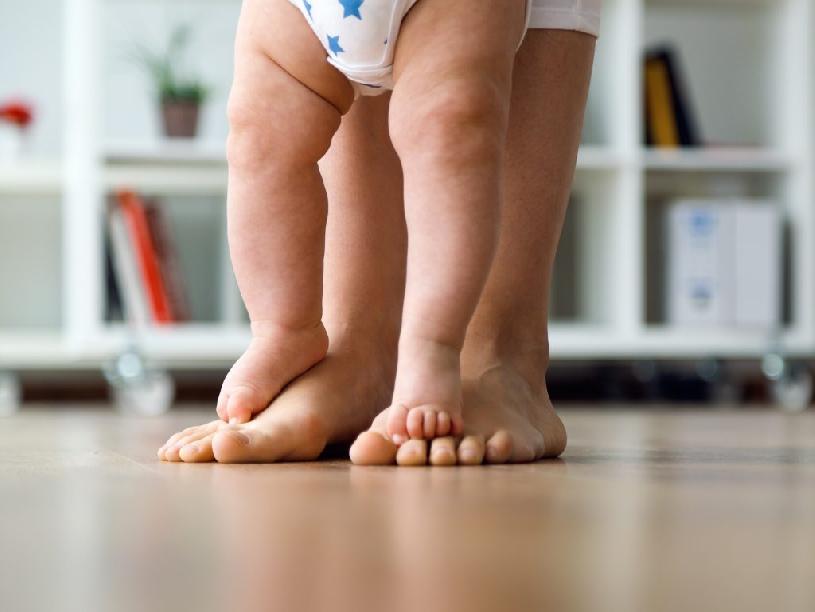【陳慧珊】有一種教育,叫學習做決定 (24) 分階段學習
2016-11-29

教育,是由認識自己與自己的關係開始。在嬰兒牀上,我們本能地由認識身體最基本的部分開始。同一時間,透過個人的探索,以及別人教我們的事,我們開始找到與身體各部分有關、屬於「甚麼」類型問題之答案。例如,手和腳用來做甚麼?我可以利用手和腳做到甚麼事情?隨後,我們會認識到「如何」這類問題的答案。如何利用手拿著湯匙?如何以雙手將豆蓉舀進湯匙裏?基本上,我們就是會理解到身體各部分都屬於自己,亦會認識到各部分的關係,如何操作它們以應對生活問題。
之後,我們會認識自己與家庭的關係。我們會明白到,如果將湯匙的豆蓉扔到房間的另一端,我們會從一些叫「大人」的人身上得到反應。大人的回應、行動以及沉默,都向孩子示範在家應有的表現。小朋友們則一直在試驗,或與大人談判,以找出合適或不當行為的底線。通過試驗、合作、談判及個人化與家人的關係,小朋友會意識到人際關係不只可以加強,更可以令它更美妙。
孩子們隨後亦會發現,無論他們是否進行試驗、合作、談判,一樣可以滿足到基本需要。同時,無論如何,家庭都是力量來源,以及基本歸屬感的核心所在。
可是,世界不只由自己與家庭組成。孩子們都要認識更廣闊的人際關係是如何運作的,即是自己與家人以外的人,以及家庭以外的環境之關係。
這就是「學校」發揮作用的地方。
上星期一晚,我到港大上最後一課「論文寫作」。出門前,我提醒女兒媽媽要上學去,而她就和平日一樣和善,希望我上課順利,如同我平日早上,祝她有愉快的一天一樣。不過,她今次沒有直接回房完成歷險小說《Wings of Fire》,她停了一下問我:「媽媽,為甚麼你仍要上學?」
其實我們之前已經討論過這個問題。或者那一刻,她想再確認一下我要離開她4小時,做她眼中屬於小朋友的事情之原因。不過這個問題實在問得好,值得一個好答案,所以我放下背包以及車匙(反正我也提早了30分鐘),與女兒投入一段有意義的對話。可是,這個問題有點複雜,我要引出我先生的論據及智慧,以及與別人如家人交換的意見,例如為甚麼人要上學,亦根據不同學習階段,我們需要以及會學到的不同知識,而得出以下看法:
小學
它是一個天堂,提供道路、鼓勵我們去犯錯及改正;亦呼喚了作為個體的我們(精神、心理、情感、心靈上),去發現與他人及其他事物的關係。
中學
它是個結構良好,且相對更嚴厲的學習環境。在這裏,通過剪裁出屬於自己的「校服」,裝備自己進入下個學習階段,啟發一條踏上正式教育的道路,我們開始認識到如何編撰自己的人生,並建立出應對各種競爭的技能。
高等教育
它是個有系統的試場,讓我們超越自己,忘記以前所學的東西,直到引發出新主意,找到新的道路。這時,我們已能融合學過的一切,以智慧應用。
當我們兩夫婦跟女兒進行這種「哲學性」的對話時,也有提醒女兒毋須每一句都要聽得懂。然而,從9歲女兒那閃爍的眼神中,我們可以肯定她有受各種的刺激啟發。我們又教她捉緊明白的部分,最終她都會找到方法去明白我們的用意,然後從中建立自己的認知。可能這需要一點時間,但完全沒有問題。
因為我知道,某程度上,透過不同程度的正規教育,以及在家庭以至其他地方的教育經驗,若她持續比較個人能力和成就與他人的關係,最終,她也會找到實現自己能力的方法。講到底,這不就是學習的終極目標:建立個人能力,讓自己在生命裏獨立自主,成為有智慧的決策者嗎?
作者:陳慧珊
網上圖片
相關文章:
【陳慧珊】有一種教育,叫學習做決定 (23) 有能力做自己
【陳慧珊】有一種教育,叫學習做決定 (22) 我們的勝利之道
Decision Making is Educational
“Learning by Stages”
Education begins by learning about the self in relation to the self. In the crib, we instinctively start with the fundamental elements called body parts. Simultaneously through our own discoveries and taught discoveries, we start to find out answers to the fundamental “what” questions associated with our body parts. What do these hands and feet do? What can I get my hands and feet to do? Then we learn the “how” questions, such as how to hold the spoon with our hands and how to use our hands to maneuver the mashed peas into the spoon. Basically, we learn that our body parts belong to us and the relation of these body parts in terms of how to manipulate them for survival.
Then we learn about the self in relation to our family. We learn that if we took the spoonful of mashed peas at the dinner table, and threw them across the room that we will get a reaction from adults called parents. Parents’ reactions, actions, and inaction demonstrate to their children expected behavior in the home. Children test and make negotiations with their parents to see how far they can go with appropriate and inappropriate behavior. Through testing, cooperating, negotiating, and individuating within the family relationship, children are awakened to the idea that human relationships can be both powerful and wonderful.
Then children realize that whether they test, cooperate, negotiate, or individuate that they will still get their human needs met, and that no matter what, the family is the source of their strength and the core to their fundamental conviction of belonging.
However, the world is not just made up of the self and the family. Children also have to learn how to function within the relationship of the larger world, i.e. the world of the self in relation to others (aside from family members) and in other environments external to the home.
That’s where the function of the ‘school’ comes into play.
Last week before I headed out to HKU to attend my final Monday night “Thesis Writing” class, I reminded my daughter that I was going to school. She was kind as usual and wished me a good class, just like I wish her a good day at school each morning. However, this time she paused before she strutted back into her room to finish her “Wings of Fire” dragon adventure book, and asked, “Mama, why do you still need to go to school?” We’ve had conversations about this before so she knew the answer, but at that moment perhaps she wanted to justify the reason for my having to leave her for 4 hours to do something that (in her eyes) only most children, and not adults my age do. Seeing that it was a good question that deserved a good answer, I dropped by backpack, put down the car keys, (and since I had 30 minutes to spare) we engaged in a meaningful conversation. However, for this complex task I elicited the support and wisdom of my husband and exchanged views as a family, on things such as why people go to school, based on the types of knowledge and learning we seek and attain at different levels of schooling:
Primary school:
A haven where we’re encouraged to knead our mistakes deliberately along the path to awakening our being (physical, mental, emotional, spiritual) and discovering ourselves in relation to others (human or object).
Secondary school:
A well-structured and comparatively more demanding environment where we start knowing how to be the author of our life, and form skills to face and cope with rivalry of all sorts…by tailoring ourselves with a distinctive “school uniform” in preparation for our next admission and inspiration in the path of formal education.
Tertiary education:
A systematic testing ground where the formula to excel is to forget everything we’ve learned in the past…and continue to forget until we’ve reached a new idea, or a new path…at which time we incorporate everything we’ve ever learned …to applying wisdom.
When my husband and I have more “philosophical” conversations with my daughter I tell her that it’s okay not to understand everything we talk about. But we do see glimpses in the eyes of my 9-year old daughter which confirms that she is awakening through taking in stimuli in various forms. We also tell her to grasp the parts that she can and eventually she will find a way to appreciate our sharing and to form her own versions of knowledge from them, or that if it takes a while to reach that point, that that would be all right too.
Because I know that somehow, through the different levels of formal schooling and educational experiences at home and elsewhere — and through her constant comparison of her competences and accomplishments in relation to others, that she will eventually find the know-how to actualize the power of self-reliance. After all, isn’t that the ultimate quest for learning – to gain the ability to be autonomous and wise decision-makers in life?
Text by Flora Chan
